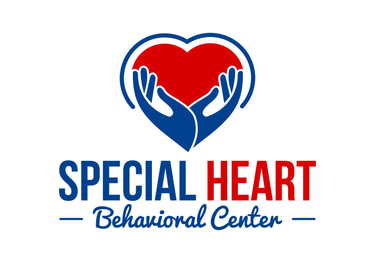Helping Your Child with Autism
7/28/20252 min read


Helping Your Child with Autism: A Guide Based on Modern Special Education Techniques and ABA
Being a parent of a child with autism can be a challenging yet rewarding journey. Each child is unique and has specific needs, so it's essential to understand how to best support your son or daughter in their development and growth. Here's a guide based on modern special education techniques, with a special focus on Applied Behavior Analysis (ABA), to help your child with autism thrive:
1. Educate Yourself about Autism: The first step is to educate yourself about autism. Understanding the characteristics and challenges your child faces will help you comprehend their perspective and respond appropriately to their needs.
2. Seek Early Assessment and Diagnosis: If you suspect your child may have autism, seek early assessment and diagnosis by specialized professionals. An early diagnosis can facilitate access to interventions and services that will benefit your child in the long run.
3. Engage in ABA Therapies: ABA is widely recognized and used in autism treatment. This therapy focuses on understanding and modifying behavior through rewards and positive reinforcement. Seek qualified ABA therapists to work with your child and enhance their social, communicative, and academic skills.
4. Encourage Communication: Many children with autism have difficulties with verbal and non-verbal communication. Use visual strategies, alternative and augmentative communication (AAC) systems, and sign language if necessary to improve communication with your child.
5. Establish a Structured Routine: Children with autism often feel more comfortable and secure in predictable environments. Establishing a structured routine can reduce anxiety and help your child anticipate what will happen throughout the day.
6. Foster Social Skills: Help your child develop social skills by teaching them how to interact with other children and adults. Role-playing and practical social situations can be useful for practicing these skills.
7. Utilize Rewards and Positive Reinforcement: ABA emphasizes the use of rewards and positive reinforcement to motivate desired behavior. Celebrate your child's achievements, no matter how small, to keep their motivation high.
8. Promote Independence: As your child grows, look for opportunities for them to develop self-care and autonomy skills. Setting realistic goals and providing gradual support can help your child become more independent.
9. Take Care of Your Well-being: Caring for a child with autism can be emotionally and physically draining. Don't forget to take care of yourself and seek support if needed. Getting adequate rest and managing stress will allow you to be more present and prepared to help your child.
10. Encourage Inclusion: Help your child integrate into the community and participate in regular activities as much as possible. Social inclusion is valuable for developing social skills and emotional well-being.
Remember that each child is unique, and what works for one may not work for another. Maintain an open and flexible mindset as you learn more about your child and adjust your approaches to their changing needs. With patience, love, and support, you can be a valuable guide for your child with autism on their journey towards a bright future.
